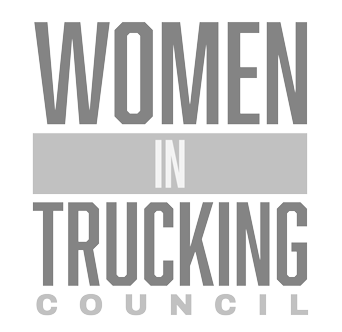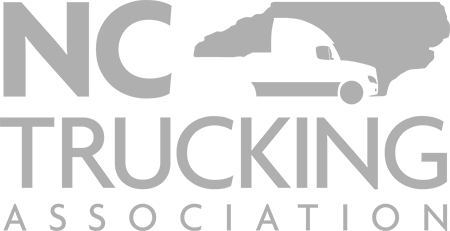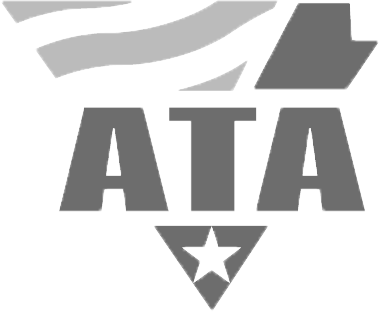Understanding the Mounting Truck Driver Shortage
The trucking industry, a foundational pillar of the global supply chain, continues to grapple with a persistent and escalating challenge: a significant shortage of qualified truck drivers. This deficit directly impacts freight movement, leading to potential delays, increased costs, and strain on logistics networks. For companies seeking reliable transportation, understanding this crisis is the first step toward finding effective remedies. Addressing this critical need requires proactive and innovative strategies, and this is precisely where effective APEX Transit driver recruitment solutions can play a pivotal role. The demand for freight services continues to outpace the available pool of drivers, creating a bottleneck that affects everything from manufacturing to retail.
Recent data underscores the severity of this issue. According to statistics, the United States alone faced a shortage of tens of thousands of drivers in recent years, a number projected to grow substantially over the next decade if current trends persist. For a detailed statistical overview, you can refer to reports from Statista on the U.S. truck driver shortage. This ongoing struggle to fill seats directly threatens supply chain fluidity and economic stability, making robust driver recruitment and retention strategies more crucial than ever.
Key Factors Fueling the Workforce Challenge in Trucking
Several interwoven factors contribute to the ongoing truck driver shortage, creating a complex challenge for the industry:
- Aging Workforce: A significant portion of the current driver population is nearing retirement. As these experienced professionals leave the industry, there aren’t enough new entrants to replace them, creating a demographic gap.
- Demanding Lifestyle: Long hauls, extended periods away from home, and irregular schedules can be deterrents for new recruits. The perception of a challenging work-life balance often discourages potential drivers.
- Training and Licensing Barriers: Obtaining a Commercial Driver’s License (CDL) requires time, effort, and financial investment. The cost of training and the rigorous testing process can be significant hurdles for many aspiring drivers.
- Competition from Other Industries: Trucking competes with other blue-collar sectors for skilled labor, many of which offer more predictable hours or different working conditions.
- Infrastructure and Parking Issues: A lack of safe and adequate parking facilities along routes adds to driver stress and can impact productivity and compliance with Hours of Service regulations.
These challenges highlight the need for comprehensive solutions that address not only the recruitment aspect but also the underlying issues that make trucking a less attractive career path for some.
Strategic Approaches to Attract New Talent
To combat the driver shortage, the trucking industry is exploring and implementing various strategic approaches aimed at attracting new talent. These initiatives often focus on making the profession more appealing and accessible:
- Improved Compensation and Benefits: Increasing driver pay, offering comprehensive benefits packages, and providing performance incentives are direct ways to attract and reward skilled professionals.
- Modern Equipment and Technology: Investing in newer, more comfortable trucks equipped with advanced safety features and telematics can enhance driver experience and operational efficiency.
- Apprenticeship Programs: Developing structured apprenticeship programs helps new drivers gain experience under the guidance of seasoned mentors, bridging the gap between training and independent driving.
- Targeted Recruitment Campaigns: Outreach efforts targeting underrepresented demographics, such as women and veterans, can broaden the talent pool. Easing the transition for veterans into trucking careers, for example, leverages their discipline and existing skills.
- Addressing Age Barriers: Advocating for policy changes that allow younger drivers to enter interstate commerce, coupled with robust training, could bring a fresh influx of talent.
These strategies collectively aim to create a more attractive and sustainable career path for current and future drivers, fostering an environment where growth is possible.
The Role of APEX Transit Driver Recruitment Solutions
At APEX Transit, we understand that attracting top talent is not just about filling vacancies; it’s about building a strong, reliable workforce that aligns with our core philosophy: Move – Manage – Optimize. Our dedicated approach to APEX Transit driver recruitment solutions focuses on fostering a supportive environment that prioritizes driver well-being and professional growth. With approximately 86 drivers on record, managing a fleet of around 80 Volvo power units and 500 Hyundai dry-van trailers, we recognize that our drivers are our most valuable asset.
Our recruitment strategy goes beyond conventional hiring. We emphasize:
- State-of-the-Art Equipment: Our fleet comprises the latest-generation Volvo VNL tractors equipped with inward/outward cameras and air-ride, food-grade Hyundai trailers, ensuring drivers operate comfortable, safe, and efficient vehicles. Our on-site, 24-hour mechanic shop keeps all equipment above-standard for reliability.
- Advanced Technology: Drivers benefit from a modern telematics stack, including Samsara ELD, LoadStop TMS, and open-API GPS links, providing real-time 100% visibility. This technology not only enhances safety and compliance but also streamlines operations, making a driver’s job smoother.
- Commitment to Safety: As a responsible carrier, we prioritize safety, which translates into better working conditions and peace of mind for our drivers.
- Supportive Environment: Being a family-run motor carrier, APEX Transit cultivates a culture of mutual respect and support. Drivers are seen as partners, not just employees.
These elements form the cornerstone of our comprehensive driver recruitment solutions, designed to attract and retain the best talent in the industry.
Beyond Hiring: Cultivating a Culture of Driver Retention
Recruitment is only half the battle; retaining skilled drivers is equally, if not more, important for long-term success in the trucking industry. A high turnover rate can be costly and disruptive, highlighting the need for strategies that extend beyond the initial hiring process. At APEX Transit, our commitment to drivers is deeply ingrained in our family culture, reflecting multi-generation stewardship that meets an enterprise tech stack. Our growth, as highlighted in a Volvo Magazine feature, is directly credited to this focus on drivers and an unwavering commitment to safety.
Key elements of our retention strategy include:
- Fair Compensation and Incentives: We offer competitive pay and benefits, recognizing the hard work and dedication of our driving professionals.
- Respect for Work-Life Balance: While the nature of the job involves time on the road, we strive to maximize drivers’ home time where possible and provide predictable scheduling when feasible.
- Ongoing Training and Development: Investing in our drivers’ skills and professional growth, including safety training and advanced technology usage, demonstrates our commitment to their careers.
- Open Communication Channels: Maintaining an environment where drivers feel heard and valued is crucial. Feedback is encouraged and acted upon.
- Modern and Well-Maintained Equipment: Providing reliable, comfortable, and safe vehicles, regularly serviced by our on-site 24-hour mechanics, significantly improves driver satisfaction and reduces downtime.
By fostering a positive work environment, prioritizing safety, and offering consistent support, APEX Transit ensures its drivers feel appreciated and committed, contributing to a stable and experienced fleet.
Paving the Road Ahead: Sustainable Solutions for the Trucking Industry
The future of the trucking industry depends on sustainable solutions that address both the immediate challenges of driver shortage and the broader demands for efficiency and environmental responsibility. APEX Transit is at the forefront of this evolution, combining innovative logistics strategies with a deep commitment to its workforce. Our approach to sustainable growth integrates a hybrid asset and brokerage model, which helps cushion volatile markets and ensures reliable capacity even during periods of flux, like those influenced by fluctuating driver availability. This adaptability is key to building resilience, as discussed in our insights on hybrid freight solutions for market volatility.
Beyond effective APEX Transit driver recruitment solutions, our long-term vision includes:
- Technological Integration: Leveraging advanced telematics like Samsara ELD and LoadStop TMS not only optimizes routes and improves visibility but also enhances the driver experience, making the job more efficient and less stressful.
- Sustainability Roadmap: We are committed to actionable emissions reduction, with a target of hauling 30% of loads on bio-fuels by the end of 2025. This commitment to environmental stewardship also contributes to a modern and forward-thinking image that can attract new talent.
- Community Engagement: Our partnerships with organizations like American Logistics Aid Network (ALAN) and Move for Hunger showcase our dedication to broader societal impact, fostering a sense of purpose among our team.
- Continuous Improvement: Regularly evaluating driver feedback and industry trends allows us to adapt our practices to better serve our team and maintain our reputation as a preferred employer.
By focusing on our drivers, embracing technology, and pursuing sustainable practices, APEX Transit is not just navigating the current landscape; we are actively shaping a more robust and attractive future for the trucking industry, ensuring we can continue to Move, Manage, and Optimize freight services for years to come.
Have questions? Contact us here.














